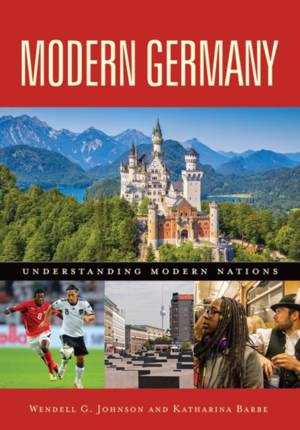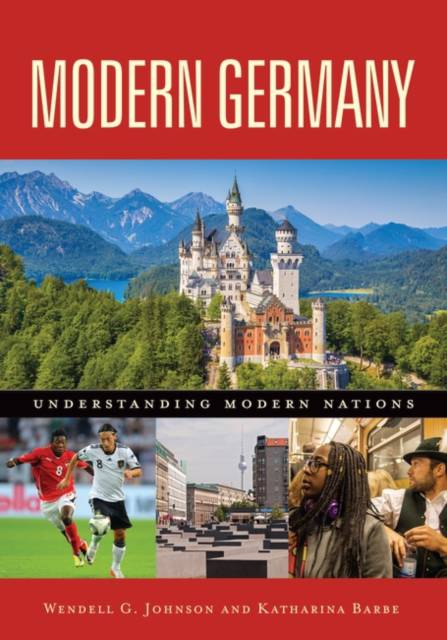
En raison d'une grêve chez bpost, votre commande pourrait être retardée. Vous avez besoin d’un livre rapidement ? Nos magasins vous accueillent à bras ouverts !
- Retrait gratuit dans votre magasin Club
- 7.000.000 titres dans notre catalogue
- Payer en toute sécurité
- Toujours un magasin près de chez vous
En raison de la grêve chez bpost, votre commande pourrait être retardée. Vous avez besoin d’un livre rapidement ? Nos magasins vous accueillent à bras ouverts !
- Retrait gratuit dans votre magasin Club
- 7.000.0000 titres dans notre catalogue
- Payer en toute sécurité
- Toujours un magasin près de chez vous
Description
This thematic encyclopedia presents a broad overview of contemporary Germany, spanning such topics as geography, pop culture, the media, and gender roles.
Themes in the book cover geography; history; politics and government; economy; religion and thought; social classes and ethnicity; gender, marriage, and sexuality; education; language; etiquette; literature and drama; art and architecture; music and dance; food; leisure and sports; and media and pop culture. Within each theme, short topical entries cover a wide array of key concepts and ideas, from LGBTQ issues in Germany to linguistic dialects to the famous Oktoberfest.Spécifications
Parties prenantes
- Auteur(s) :
- Editeur:
Contenu
- Nombre de pages :
- 464
- Langue:
- Anglais
- Collection :
Caractéristiques
- EAN:
- 9781440864537
- Date de parution :
- 29-03-22
- Format:
- Livre relié
- Format numérique:
- Genaaid
- Dimensions :
- 180 mm x 246 mm
- Poids :
- 1156 g

Les avis
Nous publions uniquement les avis qui respectent les conditions requises. Consultez nos conditions pour les avis.






